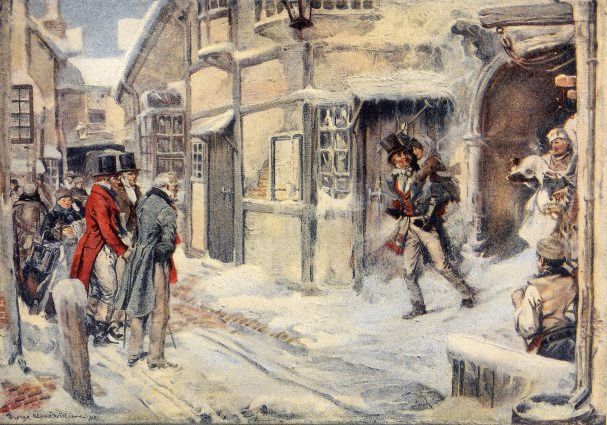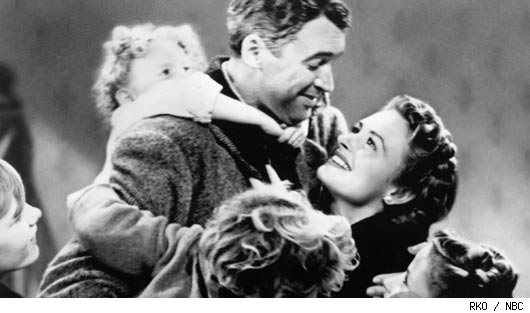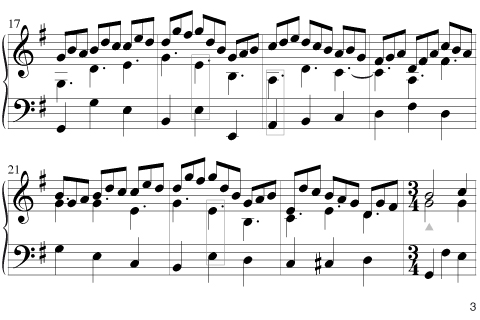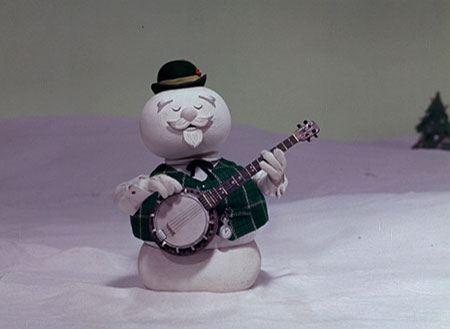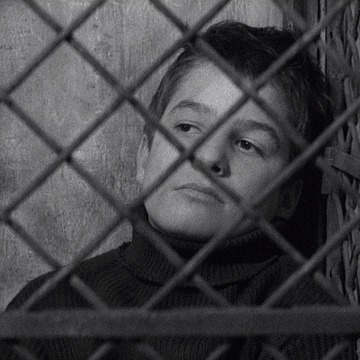
When the nights are dark and cold, there’s nothing like curling up in a comfy chair, next to a warm fire, with a good book.
Few of us have wood fires these days (though I happen to be sitting beside one at the moment), and in any case there are air pollution issues, but I find I can achieve something almost as good with ducted heating, a few candles, a nice reading lamp with a full-spectrum bulb, and some Christmas lights twinkling on the tree or around the window.
(If the smell of wood smoke is vital for you, you can always get one of those small Hibachis and burn a few pine chips, but make sure your smoke alarms are turned off first if you are going to burn more than two or three. Or you can get a piney smell by draping a few branches and garlands around the room. I have been known to bring home fresh cut pine when I come across it for the aroma.)
And here are some suggestions for Christmas-themed reading—and a few books, as well, that I think go well with a warm chair in the dark nights:
A Christmas Carol—Charles Dickins — The classic story, which so many people know without having read it. And it is worth reading (and seeing in a live theatrical production). [on Amazon; ebook version]
The Night Before Christmas — Many of us can recite this poem (by Clement Clarke Moore) by heart, but it helps to have a nicely illustrated version to read aloud on Christmas Eve, and the illustrations in this one, by Charles Santore, are lavish and appealing, albeit very much the expected, traditional thing. [on Amazon]
How the Grinch Stole Christmas—Dr. Seuss — Yet another classic Christmas text we all know by heart, but I suspect many people know it mostly from the original animated TV version, which is charming and terrific, but shouldn’t supplant the original. [on Amazon]
Olive, The Other Reindeer—Vivian Walsh and J. Otto Seibold — The newest edition to the canon of Christmas classics, at least for me—I found it utterly enchanting, first in book form and then in the TV special, with Drew Barrymore doing the voice of a dog named Olive who thinks she’s the other reindeer from the line in the song, “all of [Olive] the other reindeer.” [on Amazon – the ebook is free if you have Kindle Unlimited]
Miracle and Other Christmas Stories—Connie Willis — Hugo and Nebula award-winning author Connie Willis reimagines some of the key themes of Christmas in this collection of warm and generous stories. [on Amazon]
Doomsday Book—Connie Willis — Set in Oxford of the future, when time travel is a research tool for history departments, and in Oxford of the 1300s, when plague stalked the land. It’s a phenomenal read, deeply moving in places, and set during Christmas. An excellent book for curling up with on a winter evening. [on Amazon]
Hogfather—Terry Pratchett — “Everything starts somewhere, although many physicists disagree.” Sir Terry Pratchett has been called the greatest living satirist writing in English. Here he turns his satirical, but also always warm and generous, wit loose on Christmas (among other things). [on Amazon]
The Riverside Shakespeare — Shakespeare is always readable, and I’ve spent many a winter’s night curled up with one or another play. “A Winter’s Tale” might seem like the seasonal reading, but I’d suggest giving it a miss. It’s one of the problem plays and doesn’t really have much to offer of a seasonally appropriate nature. Paradoxically, the play I might most recommend for reading during the long nights around the winter solstice is… “A Midsummer Night’s Dream.” Its magic, mystery and wonder seem much in keeping with the season, and of course it’s delightful. [on Amazon]
The Lord of the Rings — Not at all holiday themed, but a book I’ve been curling up with during winters for more years than I care to reveal. Again, as with the Shakespeare, there is something about the mood that it summons in you as you read that does seem to consort well with the mood of the holidays, even when the content has nothing at all to do with Christmas or the holidays. [on Amazon]
In the past I would have included the YA fantasy series by she who must not be named. Not any more. But if you have them and they were special to you, they have nice Christmas scenes in them.
A newer addition to my holiday reading is Susan Cooper’s The Dark is Rising which I was turned on to by a social media post by Rob Macfarlane maybe 5 years ago, when he was proposing a winter solstice read. That led to Rob adapting the book as a radio play — which will be broadcast by the BBC in 12 parts beginning on 20 December. I’m very much looking forward to it, and am foregoing my annual read in anticipation. [book on Amazon]
If you are looking for any of these books, or for books as gifts for people you love for the holidays, please shop at independent bookshops as much as possible. If you’re in the San Francisco Bay Area, try Green Apple Books, Booksmith or Borderlands in San Francisco, or Moe’s Books or Mrs. Dalloway’s in Berkeley. They will also ship to you wherever you are.
You can also order from Powell’s Books in Portland, and Book Riot has a handy list of independent bookshops around the country from which you can order online. And if you are in the UK you can support independent bookshops by buying online with Bookshop.org
Filed under: What I Read Today, books, Christmas, eBooks, holidays

